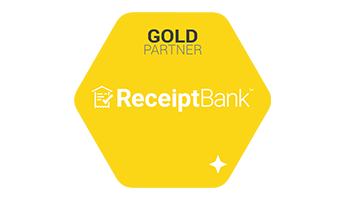
Want to pay more tax than you have to? We didn’t think so. Swinton Accountants explains everything you need to know when it comes to claiming expenses.
Keeping your business as “tax efficient” as possible can help you reduce your Corporation Tax liability and payments. One of the best ways to do this is to make sure are claiming all the expenses that you are entitled to.
When it comes to juggling your business overheads, knowing what you can (and can’t) claim will give you a clearer understanding of the numbers come tax time.
How do I claim expenses?
Expenses can be paid either directly from the business account or the costs can be paid by you and reimbursed at a later date.
Don’t forget: Employees can claim too. It would be advisable to create expense forms and policy, and remind them to hold on to receipts and collect them at the end of the month.
So what can you claim?
It is important to remember that you can only claim for expenses that you have incurred exclusively during the everyday running of your company.
As the saying goes, you can’t mix business and pleasure. In other words, you can’t claim for expenses that have a duel purpose. A prime example is travel. If you travel for work and then stay on for personal reasons, you can only claim for the days spent on business.
It is also crucial to note that there are some exceptions to the rules (e.g. business entertainment).
Bank & Insurance
Fees associated with your banking such as loan interest, and overdraft and credit card fees, as well as the cost of the business insurance policies, can all be claimed. Allowable expenses for insurance include contents insurance, employers liability, public liability expenses, and professional indemnity insurance.
Home Office
Events over the past 18 months has pushed this further into the spotlight. A percentage of household costs and utility bills such as lighting and heating can be claimed. Check whether you need to use the rate of £4 per week or by working out the amount of time certain rooms are used for work purposes.
Phone and Broadband
Mobile phone contracts registered under the company and used only for business reasons enables the entire bill can be claimed as an expense. However, if it is a personal contract then business and personal call will need to be separated, and only the business calls can be claimed. Broadband payments can also be claimed for a Limited company.
Legal and Accountancy Services
As long as they fit within the rules – used solely for the business – both legal and accountancy services can be claimed as expenses.
Equipment
Top of the list of equipment expenses to be claimed sits computers and software, but also includes printers, scanners, and even desks, chairs and other office furniture – as long as it meets the rules of only being used for business purposes.
Again, with more people working from home than ever before, it would be sensible to talk to the experts regarding what can and can’t be claimed now.
Travel
When it comes to company cars, only the petrol can be claimed. However, if personal vehicles are used for business travel then rates per mile (for the first 10,000 miles and then for each mile over for 10,000) can be applied.
Other travel expenses that can be claimed include parking, congestion charges and tolls, train, bus, taxi and air fares, hotel rooms and meals for overnight business trips.
Professional Development & Training
If training occurs to improve skills that can be applied at work, then these expenses can be claimed – including if travel and accommodation is involved to attend the course. However, not all training courses are eligible so it best to check before signing up!
Uniforms or Protective Clothing
Clothes with logos, full uniforms, or protective clothing required for work such as high-vis or steel capped boots, can all be claimed.
Professional Subscriptions/Memberships
Memberships to officially trading bodies (as long as they are on the approved HMRC professional body list) can be claimed. Other expenses include occupation-specific magazine subscriptions and journals. As long as they help to keep your business up to speed, then they are considered to be legitimate expenses.
Advertising, Marketing & PR
A big part of running a successful business are the promotional activities of advertising, marketing and PR. If this investment – whether a one-off or an ongoing cost – has been for business purposes only, then it is another expense to claimed.
Need more help when it comes to claiming expenses? Call Swinton Accountants today!






